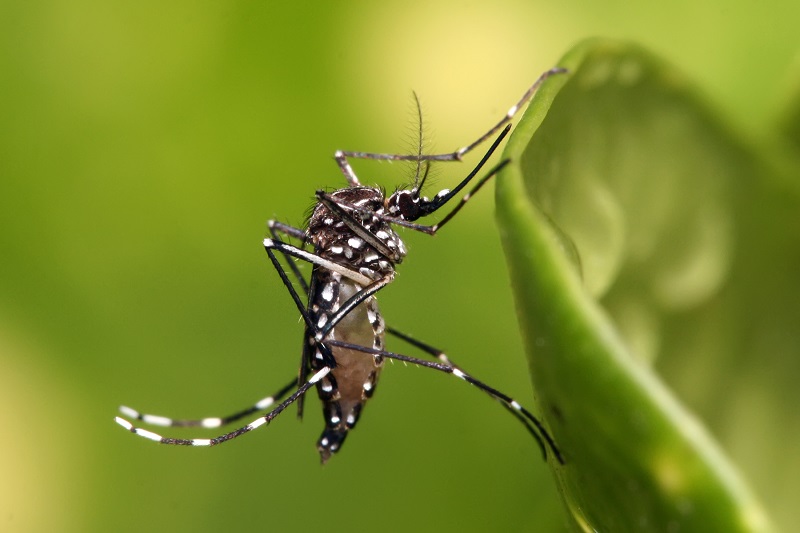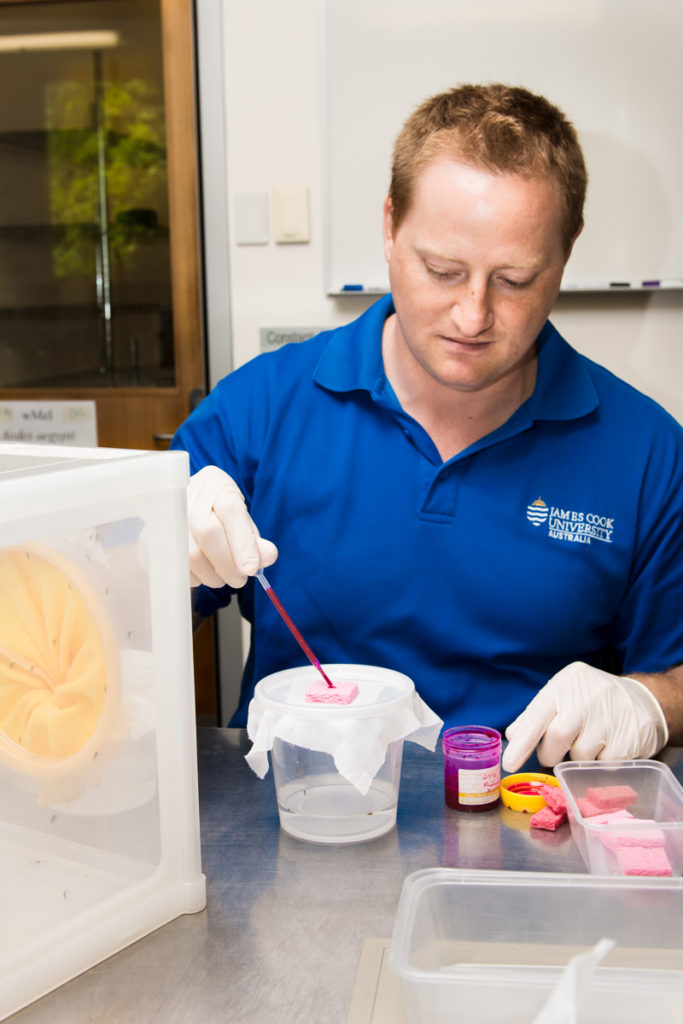Our new project in Far North Queensland aims to beat zika and other mosquito-borne diseases.

An aedes aegypti mosquito. Image: Muhammad Mahdi Karim
An aedes aegypti mosquito. Image: Muhammad Mahdi Karim
Mosquitoes – whether they’re buzzing around making sleep difficult or turning camping trips into living nightmares, these little insects are much maligned across the globe (for very good reason). While most of us endure purely irritating encounters with mozzies (ie. getting bitten followed by incessant scratching), we know that these tiny insects can pose a massive threat to public health.
In northern Australia there’s one particular mosquito species that is more problematic than others – Aedes aegypti. The female of this species has been responsible for the outbreak of exotic diseases like dengue. Globally, she’s responsible for the recent spread of the Zika virus with the number of reported cases rising dramatically in 2016. And with no available vaccines or treatments, the problem of mozzies spreading diseases now requires a global solution.
Aussie mozzies are first to take part in global Debug project
Researchers and scientists across the world are responding to this increasing threat. Today we’re announcing that our team of researchers will be working with global life sciences organisation Verily (a Google affiliate) through its Debug Project. The aim of the project is to look at innovative ways to control mosquitoes to combat the spread of disease.
We’ve been studying insects that carry and transmit diseases for many years, and mosquitoes are no exception. Together with Verily, we’re hoping to develop Sterile Insect Technique (SIT) for mosquito control, which we hope will ultimately help reduce populations of Aedes aegypti in urban landscapes.
Before that, however, it’s important to ‘know thy enemy’.

Male mosquitoes are fed a red dye for the MRR study.
Male mosquitoes are fed a red dye for the MRR study.
Understanding mozzie behaviour
Building on work we commenced in Innisfail, Far North Queensland in 2015, and pending support from the local community, we will continue to investigate the virus transmitting Aedes aegypti.
The next step in our study will see our scientists work with James Cook University in Cairns to take a closer look at the male Aedes aegypti mosquito, investigating their behaviour through what’s known as a mark, release, recapture (MRR) study. The mosquitoes will be marked with small amounts of a dye that will let us identify released males when they’re recaptured, and provide valuable information about where the mosquito travels, how far, and when it mates.
It’s all about the boys
Why are we only looking at males? Male mosquitoes don’t bite, they feed off nectar, so don’t transmit disease. Our research is focusing on using the male mosquito to reduce or remove urban populations of this disease-carrying mosquito species, so it’s vital that we understand them.


Pingback: What a buzz: why we published millions of mozzies in northern Queensland | Tech News
23rd November 2016 at 6:37 pm
I suppose that the team working on the mozzie problem will be talking to the guys in South Africa (tsetse flies in our case) who used this idea when I think I was still at primary school (1970s)? It worked fine, excepting, as I recall, we needed to sterilise so many tsetse flies (caused African Sleeping Sickness) that it was impracticable. No sense in making the same mistakes.
Unfortunately I do not remember enough now, but the Internet/journals should be a good place to start…? I checked Wikipedia and there is a little bit there.
8th November 2016 at 3:32 pm
So they release the oxitec GMO Aedes aegypti with government approval in 2010, in NT, Queensland and WA, and now you are telling us you cant kill it, or get rid of it?
8th November 2016 at 3:25 pm
Another interesting paper, directly linked to transmission of disease via mosquitos and tics. https://www.academia.edu/29723759/Mycoplasma_the_Linking_Pathogen_in_Neurosystemic_Diseases_Donald_W._Scott_MA_MSc
27th October 2016 at 4:21 pm
I worked in remote Australia last year got bitten by mosquitoes and have been incapacitated ever since. Just been diagnosed with RA from the virus. My life will never be the same!
3rd November 2016 at 7:54 pm
Whats RA?
5th January 2017 at 1:01 pm
Jenny is referring to rheumatoid arthritis. RA-like symptoms are caused by mosquito-transmitted diseases like chikungunya.